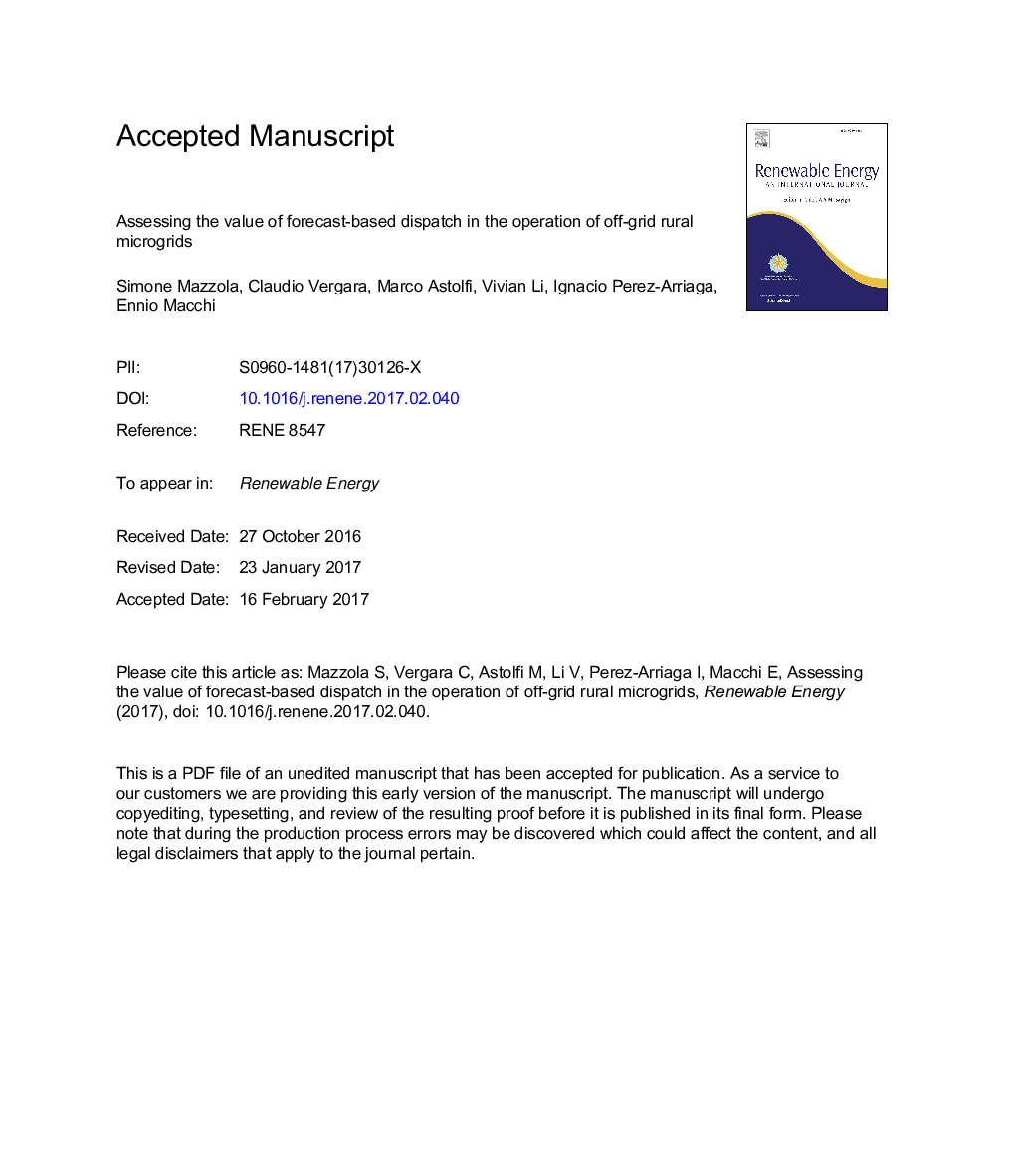| Article ID | Journal | Published Year | Pages | File Type |
|---|---|---|---|---|
| 4926498 | Renewable Energy | 2017 | 32 Pages |
Abstract
Hybrid microgrids are expected to play an important role in the expansion of access to electricity in developing countries. While most of these systems are operated with dispatch strategies which do not make use of predictions about the load or about the availability of renewable energy resources, forecast-based strategies have recently gained attention as an alternative to bring down operation costs. In this work, we develop a framework to assess this potential under a range of assumptions about the quality of load and photovoltaic generation forecasts. The application of the methodology to a village of 600 households reveals cost savings ranging between 2% and 7% depending on the forecast quality and the composition of the microgrid. We also show that sizing microgrid components under the assumption of a predictive operation strategy results in a design with a higher share of intermittent generation.
Related Topics
Physical Sciences and Engineering
Energy
Renewable Energy, Sustainability and the Environment
Authors
Simone Mazzola, Claudio Vergara, Marco Astolfi, Vivian Li, Ignacio Perez-Arriaga, Ennio Macchi,
